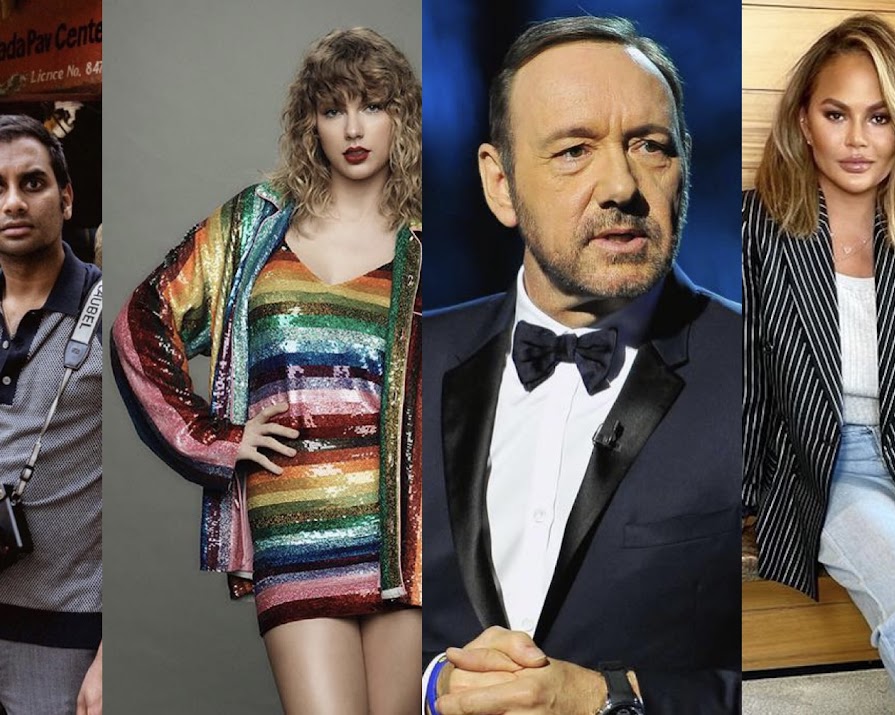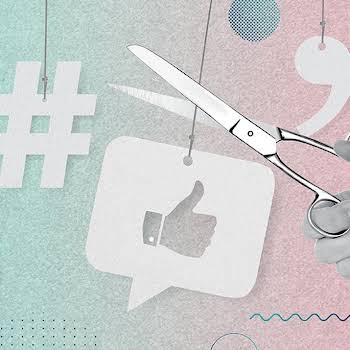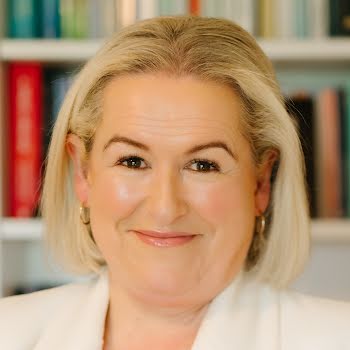Social media redemption: Why are some celebrities forgiven and others are not?
By Sarah Finnan
04th May 2022
04th May 2022
We’ve heard of trial by social media, but who decides forgiveness by social media? And is it different for men and women?
Trial by social media. We’ve all heard the phrase thrown about in conversation. In fact, we may even have participated in harmless chatter about so-and-so’s recent escapades, blasting them for old mistakes and ignoring the glaringly obvious fact that none of us are perfect.
But what about forgiveness by social media? Who decides when it’s time to let bygones be bygones? While the former is something we see play out online all the time – we’ve all bore witness to someone’s downfall at one point or another – the latter happens much less frequently – and almost never in the case of women.
Men, on the other hand, seem to be afforded a certain sense of forgiveness that their female counterparts rarely are. No one ever blatantly comes out and says so, but months pass and things are just… forgotten? Accusations die down as new celeb scandals come to the fore, and those previously in the limelight for their wrongdoings, slowly return to their former lives, jobs, and social standings.
Chris Brown continues to chart after physical and sexual assault accusations, Woody Allen continues to receive awards after sexual abuse allegations made by his adoptive daughter, Louis CK continues to perform stand-up even after he admitted to sexual misconduct, Kevin Spacey just starred in a new movie despite over 20 sexual misconduct allegations against him… the list goes on.
Living in a digital age means that the world is quite literally at our fingertips. Our phones have become more like limbs than technological devices and it’s rare an occasion we’re seen without them. Our virtual reputations are often just as important to us as our IRL ones and the rise of social media and “cancel culture” has only fanned the flames of our online obsession.
Cancel Culture
Take Chrissy Teigen, for example, who had ten-year-old tweets brought back to the surface by a victim of her bullying, Courtney Stodden. The Tweets were frankly cruel and abusive and they speak to a slut-shaming culture that we simply would not tolerate in 2022. Teigen absolutely deserved to be chastised for her comments, but what punishment will be sufficient? Financially speaking, her Craving range was dropped by US department stores Target and Macys and according to Page Six, a deal with Bloomingdales was also axed in light of the situation.
The argument is not that she should be forgiven immediately, but more how is that achieved and who grants it.
Past tweets live forever, even if you’ve deleted them and your flippant actions as a youngster can come back to haunt you in your 30s. Yes, Teigen has since apologised for her behaviour but the internet still holds a grudge. It’s not hard to fathom why Stodden would be reluctant to forgive her, but there are many possible explanations as to why the world wide web wants to maintain Teigen’s exile too. Some might say it’s deserved, she behaved badly and so must face the consequences.
But if we aired our own dirty laundry, two decades’ worth of online activity, would we come up clean? What about the content of our many WhatsApp groups? What level of “privacy” makes it okay to say something you wouldn’t want anyone other than the intended few to read it?
Comeback
The veiled camouflage that sitting behind a screen affords keyboard warriors means that people are quick to judge and social media has a propensity to encourage online pile-ons without much provocation. Comedian Aziz Ansari is another example. Back on Netflix after a four-year break, he returned with a new series of his much-loved show Master of None last year. However, while Aziz himself is mostly missing from the programme’s on-screen antics, the show’s return is momentous in and of itself.
Accused of sexual misconduct by a former date back in 2018, Ansari faced a fallout as a result of the allegations. Privately apologising to the woman in question when she expressed her discomfort, it was one of those grey areas thrown up by the #MeToo movement. Causing a firestorm of debate online, some argued that it was simply a bad date. Others maintained that such an attitude was exactly the problem. However, just a few short months later, Ansari returned to the stand-up circuit once again and while there were some small murmurs, it quickly died back to indifference.
Which begs the question, who decides he is forgiven? Granted, he wasn’t charged with anything but that hardly denotes immediate uncancellation – Taylor Swift and Anne Hathaway both felt they had to go into seclusion for years after the internet turned on them… yet another signpost that men and women are treated differently when it comes to public redemption.
Was it perhaps because 2018 was the crest of the #MeToo wave culminating in Brett Kavanaugh’s rise to the US Supreme Court that there were so many accusations to keep track of? Kevin Spacey’s return to the big screen says yes. Recently starring in the 2021 Italian film The Man Who Drew God, the role marked his first acting job since he was embroiled in his own sexual abuse scandal less than five years ago. Over 20 people came forward with allegations against the actor at the time, which culminated in many of his contacts in the industry cutting ties with him.
Accused of very serious sexual misconduct, many of them against men who were only young teenagers when the incidents allegedly happened, Spacey denied any wrongdoing but the powers that be gave every indication that they were not going to gloss over the situation quickly. Netflix ended his contract with him, he was dropped by both his agent and publicist and even his Special Emmys Award was withdrawn. Fast-forward to today, and he’s back doing what he loves, with little to no public backlash.
Unlike Ansari, a lawsuit was filed against Spacey, which suggests that the “innocent until proven guilty” mentality cannot be employed to explain why male celebrities are often let off the hook – at least in terms of public opinion towards them. Their return to the spotlight is often met with nothing more than rolled eyes (at worst), while female celebrities face a much steeper road to redemption and often for much less.
While Ansari is one of the few to actually face such allegations head-on, there comes a point where the internet must decide whether to forgive and forget and establish if they hold themselves and the people in their lives to the same standards they hold public figures to.
Public annihilation of a person’s character never leaves any doubts as to where the virtual world stands, but the topic of forgiveness is a much trickier one to nail down. Those without sin may throw the first stone.























